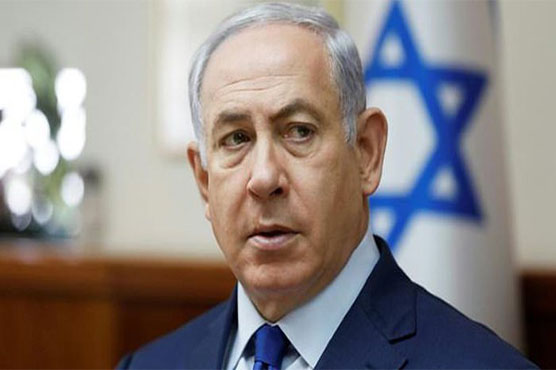Israel's indicted Netanyahu faces party leadership challenge

Netanyahu faced a challenge from a longtime rival, Gideon Saar, for his Likud party leadership.
JERUSALEM (AFP) - Israel s embattled premier Benjamin Netanyahu faced a challenge Thursday for the leadership of his Likud party from a longtime rival, former interior minister Gideon Saar.
Likud s roughly 116,000 eligible voters have until 11 pm (2100 GMT) to choose between Netanyahu and Saar, with the result expected by early Friday morning.
A defeat for Netanyahu, 70, would be a shock, but even a relatively close result could weaken his influence over the conservative party he has dominated for 20 years.
After a decade in power, Netanyahu is Israel s longest serving premier but he has been weakened by a series of corruption indictments.
After months of political stalemate, he faces a third general election within 12 months early next year -- but only if he first defeats his challenger.
Saar, 53, a former interior and education minister, is seen as slightly to the right of Netanyahu and has called for an even more hawkish policy towards the Palestinians.
The Israel-Palestinian conflict as ever loomed over politics.
On Wednesday evening Netanyahu was rushed off stage at a campaign event in Ashkelon in southern Israel near Gaza after alarms sounded indicating incoming fire from the Palestinian enclave.
Turnout was expected to be lower than previous primaries, the last of which was in 2014, as much of Israel was hit by winter storms, although it was unclear which of the candidates would benefit from this.
Only 18 percent of party members had voted by 1300 GMT, according to Likud figures.
"There is wind, there is rain, but our spirit is stronger -- so go vote for me," Netanyahu said in a video posted on social media with his wife Sara.
He cast his vote in a booth established in his residence.
His challenger Saar called it a "fateful day" for the party and the country, speaking as he went to vote near Tel Aviv.
"We can win today and embark on a new path, which will enable us to form a strong and stable government," he said.
At a polling station in Jerusalem s Kiryat Moshe neighbourhood, Rami David said he had voted for Saar because "he would give Likud a new image".
Nathan Moati, 26, backed Netanyahu and didn t think supporters were concerned by the indictment.
"The most important thing is to vote overwhelmingly," he said, adding that he wished for an 80-20 percent majority for Netanyahu.
Stephan Miller, a pollster who has worked on multiple Israeli campaigns, said whatever the result "Netanyahu can only lose" because "it will be the first time in 10 years that a group of voters on the right explicitly express their desire to get rid of Netanyahu".
The election comes after a troubled year for Israeli politics and the premier.
General elections in April and September saw Netanyahu deadlocked with centrist challenger Benny Gantz, neither of them able to command a majority in Israel s parliament.
Last month, Netanyahu was indicted for fraud, bribery and breach of trust in three corruption cases, allegations he strongly denies.
Netanyahu has sought to paint himself as an irreplaceable leader fighting a "witch hunt" by the police, the legal establishment and the media.
The primaries were called shortly after the charges were laid.
A series of polls in recent weeks have indicated a Saar-led Likud might win fewer seats in a third election than under Netanyahu, but the overall right-wing bloc might be larger -- potentially yielding a viable governing coalition.
A source close to Saar insisted his camp was hopeful of an upset, saying: "More and more, the Likud rank and file are understanding the choice is between Netanyahu and being in opposition versus Saar and being in government."
Saar has not attacked Netanyahu personally and even hinted that he would support him becoming Israel s president.
Netanyahu s downfall has been predicted multiple times since he became premier for a second time in 2009, but he has defied expectations and appears determined to fight on.
Under Israeli law, a prime minister is only forced to step down once convicted with all appeals exhausted.

